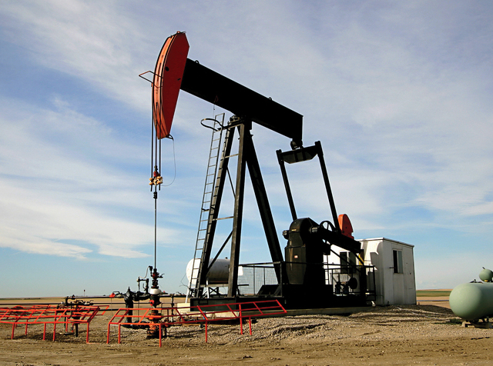The worsening political and military situation in Ukraine is having far-reaching effects. As Ukrainian and pro-Russian protestors clashed over the weekend in eastern Ukraine, Norway felt compelled to bring home Foreign Minister BØrge Brende for consultations with other Western European countries about potential natural gas supply ramifications. Brende’s abrupt return to Europe also forced postponement of a long-awaited appearance Monday at Rice University’s Baker Institute, where he had been scheduled to discuss global energy challenges and opportunities, particularly for oil and natural gas, from Norway’s perspective.
Norway’s ambassador to the U.S., Kåre R. Aas, confirmed to a media briefing at the Baker Institute Monday morning that the situation in Ukraine had forced Brende to forgo his Houston visit, to return to Europe. Ambassador Aas and other Norwegian officials emphasized that while the path that the Ukrainian crisis will take over the next week is very difficult to predict, they believe that the situation ultimately requires a political solution. They pointed to Sunday’s emergency meeting of the U.N. Security Council as an important starting point in resolving the conflict. In the meantime, Norway is meeting with its NATO allies to consider what further measures, if any, should be taken to force the Russians to back down from their meddling in eastern Ukraine.
There is great concern about the short- and medium-term stability of natural gas imports coming into Western Europe from Russia, said the Norwegian officials. About one-third of European gas imports come from Norway, while roughly another third is sourced from Russia. What concerns the European countries is that half of that Russian gas has to transit pipelines that run through Ukraine. This means that 15% of Europe’s overall gas supply is directly threatened by the instability in Ukraine, which is an improvement over what could have been the proportion a few years ago. New Gazprom pipelines built via Belarus and the Baltic Sea to Germany have cut the volume of European gas imports transiting Ukraine from about 30% to 15%. Nevertheless, any significant disruption in gas supplies could threaten the fragile Western European economy.
For its part, Norway is producing 1.7 million bpd of liquids and 105 Bcm/year of natural gas. While officials confirmed that up to 70% of discovered and projected natural gas reserves in Norway have yet to be developed and put into production, adding significant capacity to the country’s gas output and exports is not a short-term proposition. Therefore, the ability to offset any Russian gas export shortfall in the short term is very small.
Ambassador Aas confirmed that Foreign Minister Brende remains committed to maintaining the special relationship between Norway and Houston, and that he will reschedule an appearance at the Baker Institute later this year.
Providing useful resources, articles and writings on crude oil, other petroleum products, energy and gas. By Tolfem Investments Limited, online.

 Tolfem Investments Limited is a leader in the of Nigerian
Bonny Light Crude Oil (BLCO) sales market. As a privately held company, Tolfem Investments Ltd. is committed to and is focused on delivering reliable services to all her
clients.
Tolfem Investments Limited is a leader in the of Nigerian
Bonny Light Crude Oil (BLCO) sales market. As a privately held company, Tolfem Investments Ltd. is committed to and is focused on delivering reliable services to all her
clients.  Tolfem Investments Ltd has an excellent track record
of reliability in the supply of Bonny light crude oil, BLCO. We protect our buyers with 2% Performance Bond while we also expect protection from our customers with bank
instrument from the world's top banks. We deliver on TTO, TTT, CIF and FOB basis.
Tolfem Investments Ltd has an excellent track record
of reliability in the supply of Bonny light crude oil, BLCO. We protect our buyers with 2% Performance Bond while we also expect protection from our customers with bank
instrument from the world's top banks. We deliver on TTO, TTT, CIF and FOB basis.

No comments :
Post a Comment